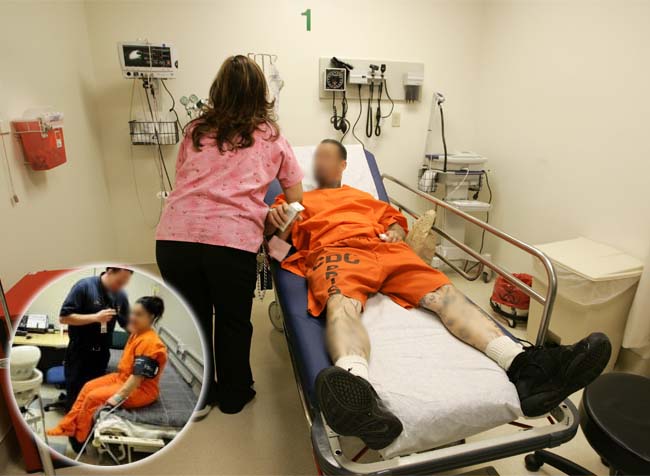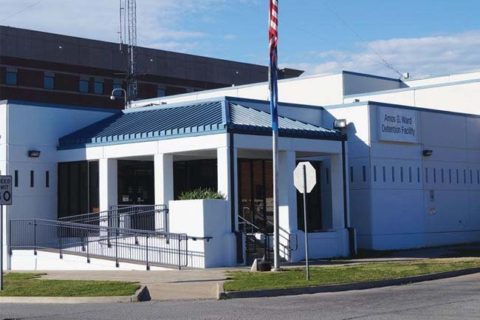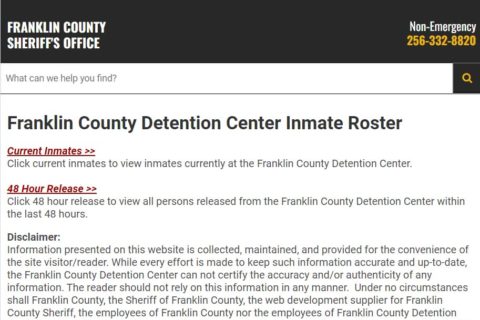For those whose loved one was just arrested by the police, you may be wondering about a lot of things. One of the things that you may be wondering about is the one who pays for their medical care while they are incarcerated. Find out the answer to the question here.
Who Pays for Medical Care While Incarcerated?

For anyone who is wondering about the one who pays for medical care of someone who is currently incarcerated, the answer to the question may vary, depending on the jurisdiction and circumstances. The one who is responsible for this kind of payment may include:
1. Government
In a lot of countries, the government is the one who is responsible for providing medical care to those who are incarcerated. It usually happens in the countries that have publicly funded healthcare systems. In this kind, the government covers the costs of medical care for every single citizen, including the ones who are incarcerated. The governments in these countries are aware that healthcare is counted as a fundamental right. Besides, they also ensure their incarceration status will not affect their access to medical services. While they are incarcerated, their healthcare expenses are usually covered by taxpayer funds.
2. Prison healthcare system
There are some jurisdictions that operate their own healthcare systems to fulfill the needs of inmates in medical care. These systems are good since they have medical staff and facilities such as onsite clinics or hospitals. Normally, the costs of these healthcare systems are covered by the prison system. In some cases, they may also be covered by the government agency that is responsible for corrections.
3. Inmate through co-payments
In certain jurisdictions, those who are incarcerated may need to co-pay for their own medical services that they get while they are behind the bar through co-payments method. Basically, they will have to pay for their own medical care partially and not fully. While some may think that it is a bit harsh for incarcerated people, it actually has a good aim, which is to build a sense of responsibility and accountability among incarcerated people while at the same time making sure that they get the access to medical care they need.
Talking about co-payments, it is worth noting that they are usually pretty low. In addition, they also do not represent a significant financial burden for those incarcerated.
4. Private insurance
If the incarcerated people have private health insurance coverage even before jail time, the answer to the questions of who pays for their medical care while they are in jail can vary. There are some insurance companies whose policies allow them for medical care in correctional settings. On the contrary, there are also some others with limitations or exclusions. The certain insurance policy and the circumstances will determine the extent of coverage and reimbursement. In this kind of case, the insurance provider, the incarcerated one, and the correctional facility may have to team up to pay for the medical care. Read below for details.
If someone is in jail or prison, their benefits change. These include Medicaid and Medicare. According to the Constitution, incarcerated people have the right to get health care while they are incarcerated under the Eighth Amendment.
There are a few factors that can affect their overage, including their eligibility, whether or not they were enrolled before going getting incarcerated, how long they are incarcerated, and which state they live in.
If they know they will be behind the bar for any extended period of time, they may have to reapply for health insurance after release. If they are enrolled in Medicaid before they were incarcerated, they may be able to keep their coverage and remain enrolled. However, the prison or jail is the one with responsibility for any health care services they need, except for inpatient treatment provided by a medical facility that has nothing to do with the correctional facility. For instance, an incarcerated individual may need to visit a hospital while they are in prison. If they leave the facility to be admitted to a hospital over 24 hours, Medicaid will pay for their health care.
While some states in the United States terminate Medicaid after incarceration, there are also some that choose to suspend it instead. These states include California, Colorado, Florida, Iowa, Maryland, Massachusetts, Minnesota, New York, North Carolina, Ohio, Oregon, and Texas. For the latter, Medicaid is only suspended for 30 days. After these days pass, it will be terminated.
If the Medicaid is suspended, once the incarcerated people are released from jail or prison, they will be able to get benefits again easily. However, if it is terminated, it will be needed for them to re-apply for Social Security benefits and Medicaid.
Unlike Medicaid, the way how Medicare works is a bit different. If an incarcerated was already getting Medicare before their jail time, they will still be able to get Medicare benefits while they are incarcerated. However, if they are incarcerated longer than 30 days and are convicted of a crime, any Social Security Disability Insurance payments that are usually linked with Medicare will stop. However, it should be noted that it does not mean they are no longer eligible. Their status does not affect their eligibility for Medicare.
Bottom Line
In conclusion, the answer to the question about who pays for medical care while incarcerated may vary. In some cases, it is paid by the government. Aside from the government, it can also be paid by the prison healthcare system, inmate through co-payments, or private insurance. Everything depends on the jurisdiction and circumstances. In order to provide the best healthcare for those who are incarcerated, all parties should work together. Not only can it contribute to the well-being of the inmates but also to their life after release and to public health.

A bookworm and researcher especially related to law and citizenship education. I spend time every day in front of the internet and the campus library.




